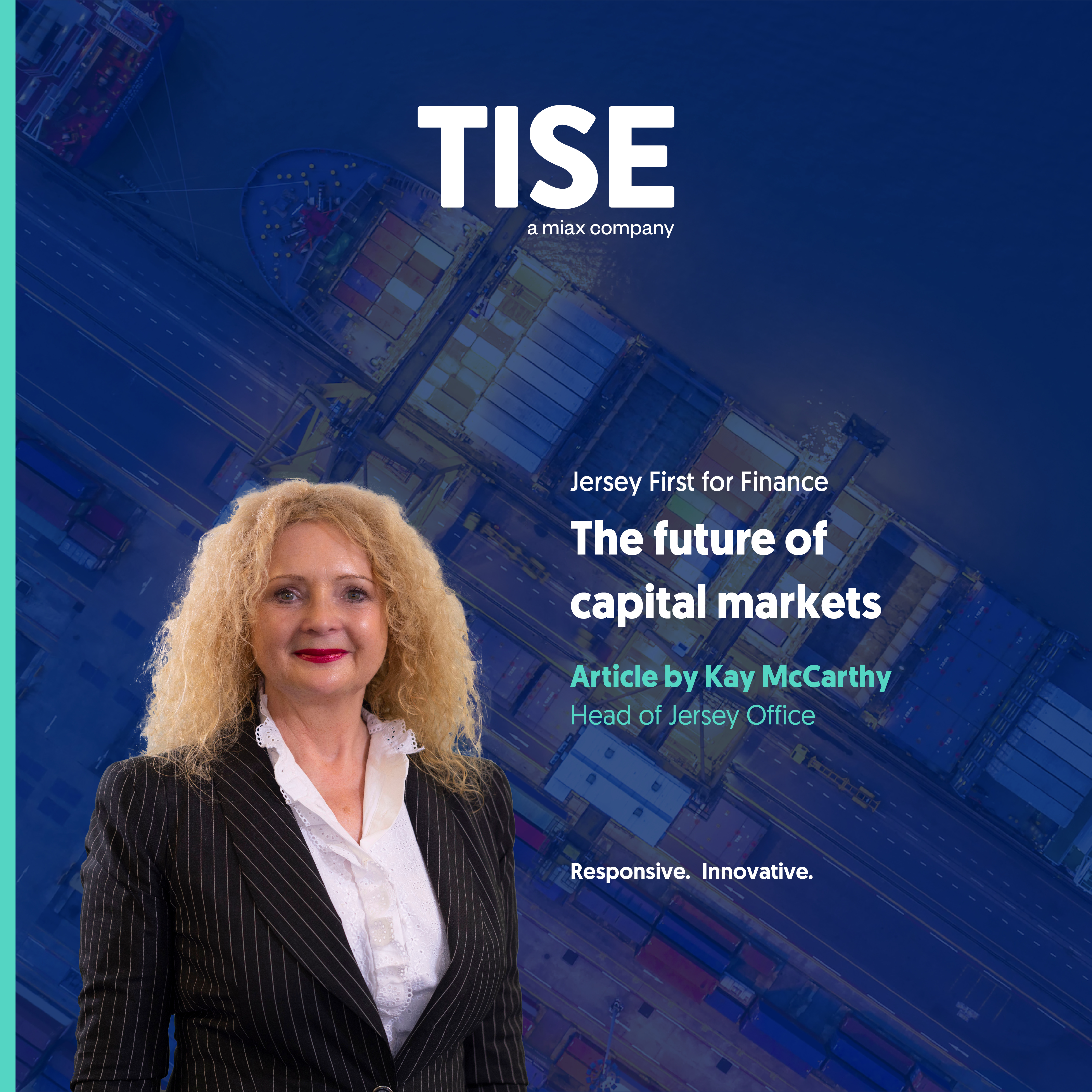As global capital markets undergo major transformation driven by innovation, technology and shifting investor priorities, several key trends are emerging that are set to shape the next decade, writes Kay McCarthy, Head of Jersey Office, The International Stock Exchange (TISE).
From the rise of private credit to the integration of artificial intelligence and tokenisation, the financial ecosystem is evolving rapidly. These developments present both opportunities and challenges for market participants and Jersey is well positioned as a leading jurisdiction to play a pivotal role in this new financial ecosystem.
Private credit
Private credit has emerged as one of the fastest growing segments of the financial system since the 2008 financial crisis. Once a niche market, it now represents a mainstream source of funding, offering bespoke and flexible financing solutions that traditional banks and public markets are often unable to match.
"Private credit has emerged as one of the fastest growing segments of the financial system..."
According to Barclays, global private credit assets under management are projected to reach US$3 trillion by 2028, which is nearly 10 times the size of the asset class in 2010.¹ This growth is being driven by a number of factors including borrower demand for customised capital, investor requirements for diversification, as well as a market environment that increasingly favours private credit over syndicated loans.
Private credit is also expanding into new areas and sectors including asset-based financing and capital-intensive industries such as automotive, energy and infrastructure. Also, as the asset class matures, it is becoming more accessible through digital platforms and innovative investment vehicles, opening up new pathways for both borrowers and investors.
Tokenisation
The global push for energy transition and digital infrastructure is creating an unprecedented demand for capital. S&P Global recently commented that private markets are increasingly stepping in to fund these capital-intensive projects, often through innovative structures like blended finance and tokenised debt instruments.²
"Tokenisation is reshaping how capital is raised and traded."
Tokenisation is reshaping how capital is raised and traded. By digitising real-world assets, tokenisation enables faster settlement, 24/7 trading and a much broader access to financial products. While challenges remain, such as regulatory fragmentation and the lack of standardised frameworks, the potential for increased transparency and efficiency is certainly significant.
As capital markets migrate to more resilient and scalable digital platforms, tokenisation is expected to play a leading role in enhancing liquidity and democratising access to a wide range of investment opportunities.
Artificial intelligence
Artificial intelligence (AI) is evolving rapidly, moving beyond static models to dynamic agentic systems capable of autonomous decision-making. These AI agents can analyse complex datasets, simulate market scenarios and execute tasks ranging from credit underwriting to portfolio management.
"The rise of AI is prompting significant investment in infrastructure, such as high-performance data centres and energy systems."
The rise of AI is prompting significant investment in infrastructure, such as high-performance data centres and energy systems. However, ethical considerations − and best practice for data privacy and transparency − must remain at the forefront to ensure trust and accountability.
Cybersecurity is another top priority for capital markets participants. As deal-making accelerates and digital infrastructure expands, the risks of data breaches and operational disruptions grow. As a result, firms are embedding cybersecurity into their strategies so that they are better positioned to build trust and resilience with clients.
ESG and sustainable finance
Environmental, social and governance (ESG) considerations are now central to capital allocation decisions. Investors are demanding credible data-driven ESG strategies that align with long-term value creation. Regulatory frameworks such as the EU’s Omnibus Package, are raising the bar for sustainability disclosures.
Capital markets are responding with a surge in green bond issuance, sustainability-linked instruments and ESG-focussed Exchange Traded Funds. Yet challenges remain around ensuring consistency and comparability across jurisdictions and asset classes.
Regional outlook
In the UK, regulatory reforms including new UK Listing Rules and AIM enhancements are designed to revitalise London’s appeal as a global listing venue. Pension reforms and retail investor incentives could further deepen domestic capital pools.
Easing monetary policy in the US and a robust private equity ecosystem are fuelling a rebound in M&A activity, though political uncertainty and regulatory scrutiny remain headwinds.
"The future of capital markets is not shaped by a single trend but by the interplay of technological, structural and strategic forces."
Despite a dip in optimism, the Asia-Pacific region continues to lead in digital innovation. China’s evolving regulatory stance and India’s capital market reforms are key developments to watch.
The Africa and Latin America regions are continuing to attract capital through infrastructure and energy transition projects, often funded by private credit and multilateral institutions. However, currency volatility and governance risks remain.
Conclusion
The convergence of financial innovation and digital transformation is redefining how capital is raised, allocated and regulated. These trends underscore a broader shift, as capital markets are no longer just venues for trading, they are strategic enablers of transformation from decarbonisation to digital inclusion.
The future of capital markets is not shaped by a single trend but by the interplay of technological, structural and strategic forces. From private credit and AI to ESG and tokenisation, the opportunities are vast and Jersey − with its agile regulatory environment and global connectivity − is well positioned to support this transformation.
¹ Barclays, Market Perspectives May 2025, Private credit: Opportunity in uncertain times
In conjunction with Jersey Finance, this article was originally published in Jersey: First of Finance, September 2025

Kay McCarthy
Head of Jersey Office

